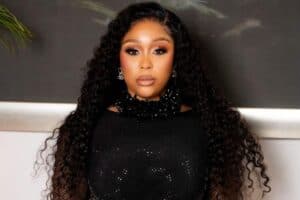Hip hop is the lyrical and musical expression of black people, which they use to express aspects of the black experience, so is it okay for a white boy to listen to it in private or out loud?

I am at pains to proceed through life in a politically correct fashion, with constant respect for my fellow humans.
I do so conscious of my own weaknesses and looking to question my attitudes so I might build a more compassionate, considerate life. I’m also a bit of an asshole.
I find myself satirising my own slavish, PC principles to the point where I’m not always sure whether I’m being serious, or kind of trolling myself.
This was the situation when I recently asked myself: is it racist for me to listen to hip-hop?
The idea came from a recent incident where I played some music over my phone speaker in the back of our office. We are easing back into a hybrid home-vs-office dispensation, and we’re starting to find ourselves in some rather desolate corners of the building, in need of company.
I figured the angsty, lovers hip-hop of global chart-topper Drake would be a pleasant soundtrack. However, I was mortified to realise that Drake is a proper rapper, and swears unapologetically, while also dropping a succession of n-words into his verses.
Now I have no problem with a black rapper like Drake doing that, but things assume a completely different complexion when a white dude like myself plays those expletives, loud, in an office of mostly black people.
Anxious to remain compliant, I posed the question on Twitter – always a reliable political correctness indicator.
“Is it acceptable for a white person to loudly play hip-hop with n-bombs in it?” I asked.
Responses trickled in, and the consensus seemed to be that, no, it’s not really acceptable. “Roll up your car windows” was one response. “Wear headphones” was another.
“Appreciate the art, support the artist. Don’t appropriate it,” said @singe.
Another guy, @nyiko_mageza, said that “Publicly playing music is basically broadcasting; there’ll be people who get offended. White people should probably avoid doing it.”
This, then brought up the issue of whether one can retweet, or share, statements from black people that include the aforementioned n-bombs.
“Retweeting is the same as saying,” was @nyiko_mageza’s opinion.
The fact is, the n-word is an offensive racial slur. It is used by white people to otherise, to demean and to degrade black people within the context of a global system of white supremacy.
In response, black people have appropriated it and turned it into a term of solidarity with one another, almost in defiance of the racists who would use it to insult them.
Similar things have been done by women and gay people, repurposing slurs as terms of endearment and even community.
Within hip hop, the n-word is a powerful term, pretty much a stylistic signifier of the entire genre. Hip hop itself is a music style with a black-consciousness angle. It is the lyrical and musical expression of black people, something they have built, claimed and which they use to express aspects of the black experience.
It is violent, offensive, misogynistic at times, at others ironic, sarcastic, other times militant and insurrectionary. In being so assertively black, I have started to wonder, is hip hop not a music expressly meant for black people?
As white people, do we in fact have the right to voyeuristically eavesdrop on this self-expression? And when we do, do we not in fact sabotage the entire process? When black consciousness is packaged for the white market, for the white gaze, is that not subverting its very reason for being?
Sure, you can make the case that listening to the more militant, assertive aspects of hip hop – your Dead Prez, Prophets of Rage perhaps, the more political J Cole and Kendrick Lamar – can help to conscientise white people as allies.
Sure. But do we have a right to listen to it? Must it be packaged for us? When the white market is the largest buyer of hip hop, is there not a risk that it becomes a type of performative rage, or a more palatable, more acceptable salve for the guilty consciences of the white listener?
In the same way, we sometimes prefer the more peaceful liberation rhetoric of Martin Luther King to the anger of a Malcom X or a Kwame Ture. We prefer Mandela the reconciler to Mandela the freedom fighter. Meanwhile their messages may not be meant for us in the first place!
Oddly, I am something of a rapper myself. I have recorded rap songs and got some radio airplay. But as for whether that constitutes hip hop, I am suddenly deeply unsure.
Perhaps hip hop, like the n-word it so proudly proclaims, is not meant for me. At least not in public. Not in the office. Certainly not in the car with the windows down!

Hagen Engler. Picture: Supplied
For more news your way, download The Citizen’s app for iOS and Android.






